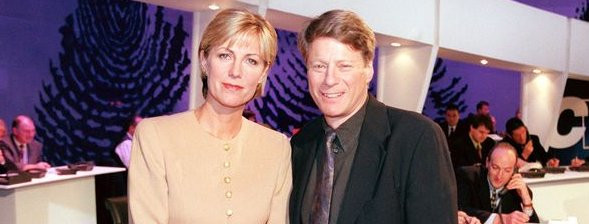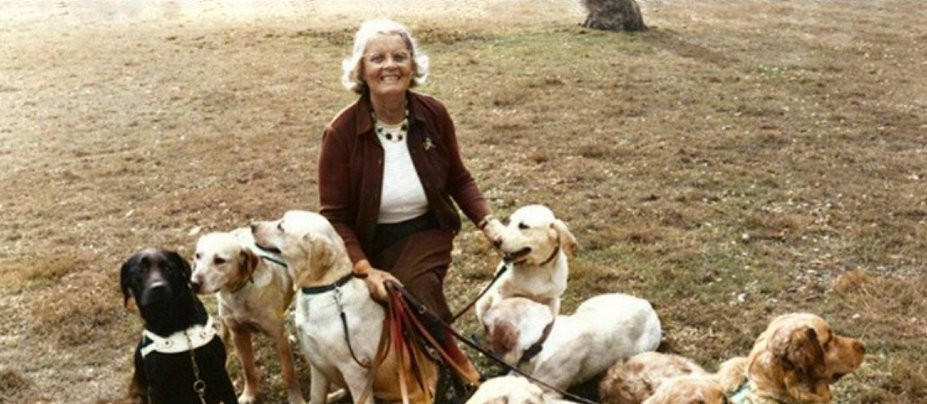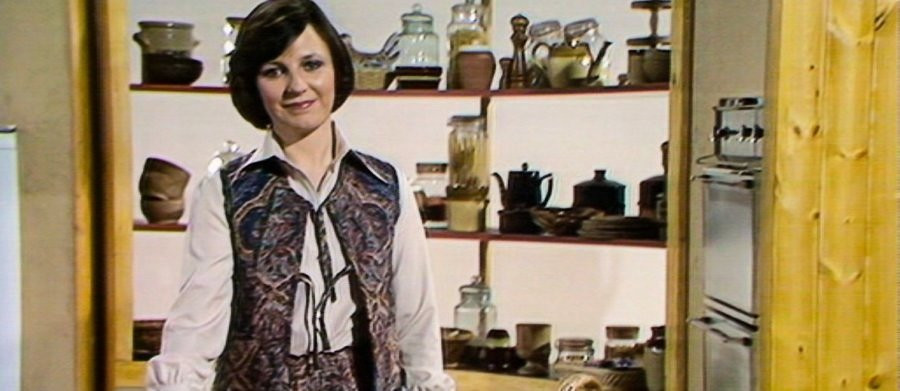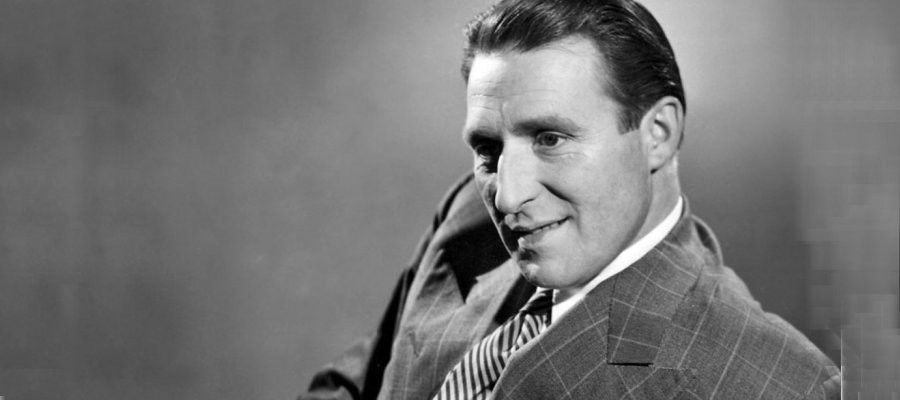
Going...Going...
There’s an old joke in which a man goes up into his attic and comes down holding a Stradivarius and a Picasso. Unfortunately, so the story goes, Stradivarius was a rubbish painter and Picasso made terrible violins.
It is a tale that has had many owners during its lifetime and, despite his questionable provenance, the man in the joke should get himself to the back of the queue of hopeful souls and try and flog his bequest on one of the many antiques programmes that currently fill the schedules. Hundreds of hours spent watching afternoon TV have convinced me that some people will watch, sorry, buy any old rubbish.
Flog It! is, of course, the title of BBC’s daytime auction show hosted by Paul Martin. It is a sort of poor relation of the Antiques Roadshow which is the big daddy of them all (and it knows it, with its initials and title emblazoned self-importantly across the sky at the end of the opening credits).

If Antiques Roadshow is Premier League, Flog It! is the Vanarama South of auction shows. I can see that exclamation mark getting on my nerves before much longer so I will omit it from any future reference.
Whereas the Roadshowturns up at fancy venues like Blenheim Palace or Windsor Castle, Flog Itmakes do with the Coventry Transport Museum or the snappily named London International Cruise Terminal in Tilbury.

Every episode is entertaining but the most satisfying ones are those in which Mr Martin sports a brightly coloured jacket. The jacket could be velour, or it could be needlecord, I am not sure which as my television is not of sufficiently high definition to differentiate. He has many technicolour coats in his wardrobe. Sometimes, on special occasions, he goes the whole hog and treats us to the full whistle and flute but usually he contents himself with just the jacket. And that’s fine by me.
Mr Martin has a liking for small decorative items made of wood, or treen as it’s called in the trade. Before I started watching these programmes, I had no idea what treen was.
In the same way, I would have guessed Wally Dugs to be a minor character in EastEnders, one of those silent lurkers who stand well back so as to get a better view of the fireworks in the Queen Vic. I have since learned that a wally dug is a colloquial Scottish term for a small earthenware dog, typically a spaniel and usually in pairs, that would stand guard over the hearth or mantelpiece.
Give Paul Martin a battered old piece that’s been hewn from a tree and he’s a happy man. He turned up once somewhere near Hebden Bridge holding a ‘lovely bit of beech’ in his hand and was as pleased as punch when a kindly shoemaker turned it into a pair of clogs for him. As he stomped, beclogged, out of camera view he reminded me of one of those matchstalk men with their matchstalk cats and dogs about whom Brian and Michael once sang so evocatively.
A few summers ago, my wife came home all excited after spotting a TV antiques expert at a car boot sale near Guisborough. When pressed for further details on his identity, she would only say that it was ‘the camp one’. Away, wife, you’ve seen enough of these programmes to know that I would need more information than that to enable me to pinpoint the TV guru. I mean, was it the camp one with the scarf or the camp one with the hat or perhaps it was the camp one with the brightly-coloured trousers…..? She replied that it was the one ‘who only drinks Camp coffee, spends all his time whistling The Camptown
Races and tells anyone who cares to listen that his favourite film is Carry on Camping. Does that narrow it down enough for you?’ The funny thing about my wife is that she has no sense of humour at all so I can only assume that she wasn’t having a joke at my expense. I still wonder sometimes, though.

I am not surprised my wife couldn’t name the expert because she has always had difficulty putting names to faces. Whenever Welsh wizard Mark Stacey puts in an appearance, we always have exactly the same conversation. My wife says ‘Isn’t he dead now?’ then I say ‘No’, then my wife says ‘Are you sure?’, then I say ‘Yes, I think you’re getting him confused with the much-missed David Barby who, unfortunately, passed away in 2012.’ Finally, my wife says ‘Oh’ in the sort of way that suggests she doesn’t believe a word I’m saying because I don’t know my armpit from my elbow most of the time.
This dialogue sounds tedious on the page but it is in reality a pleasing ritual, and one that makes watching TV with my wife such a rewarding experience.
The thing about Flog It is that it teases the viewer. You have to wait until they’ve gone through a fair few items before you get to see if they’re worth anything. Of course, as Paul sagely advises in a voiceover, prospective sellers should be ready to deduct a certain percentage plus VAT from their windfall.
Auctioneering is definitely the game to be in. They charge you to sell and they charge you to buy. If I was an auctioneer, I would be skipping gaily to work every day, rubbing my hands and laughing heartily at the thought of all that double bubble.

As it’s on BBC, the viewer never sees the money because it would be far too vulgar. ITV have no such reservations. On Dickinson’s Real Deal, colourful fifty-pound notes are regularly spread across the dealer’s table to remind everyone why we’re here. They don’t bother to tease the viewer either but go straight for the money shot. There’s none of the stately pacing of a BBC programme and it’s all the better for it.
I like David Dickinson, if only because he’s not Fiona Bruce. Any similarity between him and Lovejoy is, of course, wholly intentional. He’s even given himself his own nickname – ‘The Duke’ – and wastes no opportunity to use it on himself. He convinced himself years ago that he’s a national treasure and who am I to argue?
He has also appointed himself an unofficial financial ombudsman working tirelessly on behalf of the punter. If the Duke thinks the dealer is being less than fair with an offer, he steps in and goads him to delve deeper into the satchel and bring to the table yet more bits of coloured paper with pictures of famous, dead people on them.
I think the Duke is wasting his time. I have heard enough boastful tales of huge profits made from pieces picked up at car boot sales for 50p to know that your average punter needs no help whatsoever in putting one over on the dealer. Many is the time I have shouted ‘You jammy git’ at the jammy git on screen who has just trousered hundreds of pounds for something picked up for coppers.
I am only human, I am not averse to diddling the British Heart Foundation out of a couple of hundred quid that should rightfully be theirs. I am not sure I would be willing to broadcast the fact on Flog It, though. That’s something I’d rather keep between me and my lack of conscience.
There’s a well-known phrase ‘Let the buyer beware’ or, if it’s the BBC, ‘caveat emptor’ to remind those venturing into the market place not to trust anyone trying to flog them something. When faced with rapacious customers, stallholders at car boot sales and shop assistants at charity shops probably spend most of their time thumbing through Latin phrase books for fancy words urging a similar wariness on the seller.
If the punter on the Real Deal doesn’t like the deal on offer, the item goes to auction or, as Mr Dickinson pronounces it, ‘oction’.
There’s a middling episode of Frasier in which our hero gets into his customary tizz when trying to sell an old Russian clock. While watching Antiques Roadshow, Frasier, Niles and their father down a shot of spirits whenever they hear an expert use the word ‘veneer’.
I tried this while watching an episode of the Real Deal. Whenever the Duke mentioned an ‘oction’ I downed a tot of rum. I got so drunk that I ended up ringing the premium rate telephone number that appears at regular intervals throughout the programme promising me untold riches. There wasn’t even the indignity of having to answer a patronisingly easy question like ‘What is the capital of France? Is it - A: 1967, B: Paris or C: Norman Wisdom?’. This is money for old rope I thought, drunkenly. I just have to ring up and I’ll be loaded. I rang up numerous times but, of course, I didn’t win a button.
It took me back to my days as a teenager when I used to make regular use of Dial-a-Disc. By dialling 160 on our rotary dial, cream coloured telephone, which my mam insisted on calling ‘ivory’, I could listen to the latest hit by pop wonders Darts. They specialised in re-vamping 1950s doo-wop classics for the discerning pop-picker. Darts were a little like Showaddywadddy but with not so much emphasis on drape jackets and drainpipes. I still have the same taste in music today, only now I listen to the originals rather than copies from the late 1970s. The current trend of mindfulness would be wasted on me because I have never lived in the present moment, ever.
Two minutes and thirty-seven seconds of listening pleasure were followed by a month’s worth of worrying lest my mam should scrutinise the ensuing phone bill too closely. My dad couldn’t have cared less but my mam more than made up for this. My mam cared and then some.
Like all young people now, both my sons listen to music all the time on their phones and I can’t help feeling more than a little resentful at the un-furtive nay, brazen, way they go about it.
My sons may know their way around a touch screen but neither of them would have a clue what to do with a rotary dial. Ringing someone up used to be a beautiful, tactile experience. It was a pleasure seeing and hearing the ring of transparent plastic go round, listening to the line crackle as rows and rows of machinery whirred into action to fill the void between here and there. It was the antithesis of a mobile and if you don’t believe me, you should try walking around with a rotary dial telephone tucked in your inside pocket.
I dug out my old black GPO telephone the other day and dialled 160 to see if Dial-a-Disc was still taking calls. It might have been my imagination but, in response, I am sure I could hear the music from those old Hovis adverts echoing down the phone line.

David Dickinson started out on BBC’s Bargain Hunt before jumping ship and taking up with ITV. For a long while his replacement on the Hunt was Tim Wonnacott. With his moustache, cigarette holder and studied eccentricity, Mr Wonnacott always seems like a man doing a weak impression of Terry-Thomas. The viewer knows that he is eccentric because he wears an odd shaped hat and favours those brightly coloured spectacle frames that are beloved of TV presenters everywhere.
(The most ridiculous spectacles currently on view are those worn by Michael Buerk on Heir Hunters. This programme is known in our household as Hearse Chasers because of the persistent manner in which the probate companies attempt to seek heirs to poor souls who have died alone. When I die, I am leaving everything I own to my telly. Which is just as well, as my only worthwhile possessions are a Rawhide annual from 1962 and a box set of Whatever Happened to the Likely Lads.
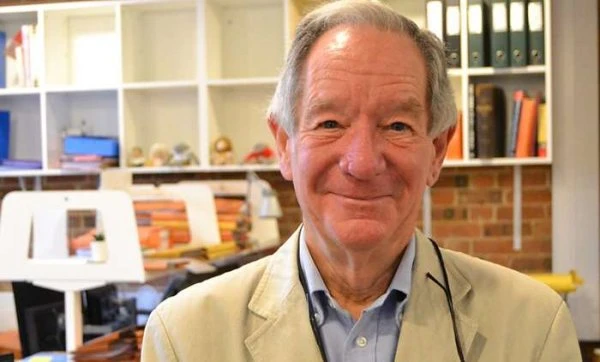
Mr Buerk’s spectacles come apart at the middle. I thought he had broken them at first or, at the very least, was trying to brighten up a particularly sad instalment with a piece of extravagant visual comedy. I expected him to scratch his eye through a non-existent lens, or vanish and re-appear with a little pair of windscreen wipers attached to his glasses but it is my sad duty to report that he was wearing these spectacles with no comedic intent whatsoever.
Anyway, back to Mr Wonnacott. He became persona non grata at Bargain Hunt because of allegations that have never really been made clear. There were dark mutterings of bullying and, as we’ve never been told the reasons for his leaving the show, we don’t know if they’re true or not.
Perhaps a contestant objected to having to do that ridiculous high kick at the end of the show and Mr Wonnacott took it the wrong way. In spite of his mannerisms, Mr Wonnacott always seemed a likeable chap. Of course, he might not be at all likeable away from the cameras but the fun of it, for those of us on the outside looking in, is that we will never know. Until persuaded otherwise, I will continue to take Mr Wonnacott at face value.
The brouhaha meant that Mr Wonnacott had to stand down after almost 1,200 episodes. Doing anything 1,200 times would be more than enough, I would have thought.
As a result of l’Affaire Wonnacott, Bargain Hunt was left without a presenter so the canny producers decided to inject some freshness into the format by introducing a different front person each week. They were following a path charted by Have I Got News For You which used a similar ruse when Angus Deayton got the push for getting caught doing things he shouldn’t.
Queen Mary said that, when she was dead and cut open, the word Calais would be found engraved on her heart. I am not perceptive enough to even begin to understand what she was going on about but I will only point out that, on the hearts of a lot of these antiques experts you, will be able to discern the more prosaic words ‘You get nowhere without cheek’.

There can be no other reason for canny Scottish auctioneer Anita Manning requesting an opening bid of £500 for some battered old wally dugs that any sane person would consign to the tip. The tumbleweed drifting through the auction house and the embarrassed silence of the bidders eventually shames Anita into a more realistic ‘Shall we say £10 then?’ Yes, we jolly well shall Anita and, to be honest, I’d say you were pushing your luck at a tenner.
Similar brazenness crops up in Put Your Money Where Your Mouth Is, in which antique dealers buy stuff at flea markets and car boot sales and then try to sell them on for the type of price that is commonly labelled ‘ridiculously inflated’. All proceeds, of course, go to charity.
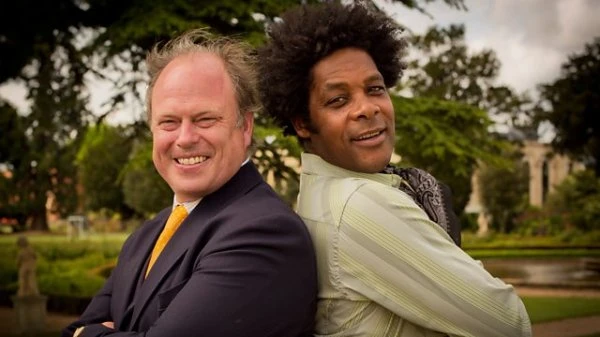
Every viewer knows what the prospective buyer is thinking: ‘You want £700 for that? You’ve got three hopes there mate stroke darling - Bob Hope, Maurice Hope and their distant double-barrelled cousin Absolutely No Bloody Hope-Whatsoever’.
Because the buyer doesn’t want to appear miserly in front of a viewing audience in the high thousands, and because it is for charity, he crumbles. After managing to knock several hundred off the asking price, he still finds himself lumbered with an item of such resounding tat that he would have felt short-changed if he had acquired it free of charge in a packet of cereal.
Charity or not, I hope the programme’s producers bung the trader a few quid after the cameras have stopped rolling, to make it worth his while.
A few years back, Flog It pitched its tent at Newmarket for a peek inside the Jockey Club. I can’t remember much about it but I suspect that there would have been lots of cutaways of Paul Martin nodding earnestly as an expert spouted on and on about Fred Archer. It is a TV rule, written or otherwise, that any programme on the history of horse racing should devote a good chunk of its time to the sad tale of this unfortunate Victorian jockey.
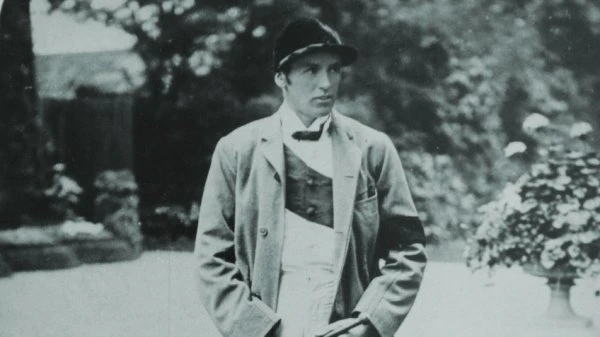
Whenever I watch horse racing, I always think of my dad. He wasn’t as well known among the racing fraternity as Fred Archer but he was just as thin. So, I’ve selected the digits 1977 on my trusty rotary dial telephone-cum-time machine and it is but a pleasant canter from leafy Newmarket to a front room in Teesside on any Saturday afternoon of that year. I could usually be found sitting watching the horse racing with my dad who would have a weekly 5p yankee on four horses judiciously picked from the fields of the ITV Seven.
For those who don’t gamble, a 5p yankee is 11 bets (six doubles, four trebles and an accumulator) at 5p each totalling 55p. I don’t think you need to bother with the tax now but dad always added the 10% tax on to the stake. There’s your 61p and, please Mr Bookmaker, look and see if there’s a winner in your bag for me.
Dad was a Suddenly at Home one Sunday morning in July, 1997. He was a creature of habit. Going through some of his things later, I found a betting slip for a ‘5p yank’, dated the day before he died, in one of his shirt pockets.
That Newmarket instalment of a cheesy auction programme reminded me of how TV sometimes enables the viewer to bypass all the mundane stuff and take a short cut to things that matter. There are loads of songs dedicated to the Power of Love but, as far as I am aware, there are none that extol the Power of Television. Some shrewd songwriter should fill this gap in the market at once because the song would certainly be one of my Desert Island Dial-a-Discs.
While we’re waiting for an enterprising composer to write such a tune, I’m off to Middlesbrough to watch the Duke and his retinue hold court at the Town Hall. I wonder how much they’ll give me for that old joke about Stradivarius being a rubbish painter and Rembrandt making terrible violins.
Published on September 2nd, 2019. Written by Andrew Coby (August 2019) for Television Heaven.



